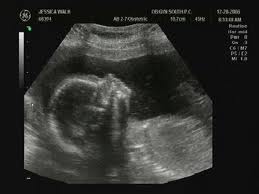 According to an interesting article on Yahoo, California, a state already grappling with a wide array of legal issues surrounding alternative families, has added one more to the mix. The most recent bill, SB1476, would allow children to be legally given more than two parents.
According to an interesting article on Yahoo, California, a state already grappling with a wide array of legal issues surrounding alternative families, has added one more to the mix. The most recent bill, SB1476, would allow children to be legally given more than two parents.
As written, the bill would apply equally to men and women, regardless of whether they were in homosexual or heterosexual relationships. The bill’s sponsor, State Senator Mark Leno, D-San Francisco, says that the bill is meant to bring the state into the 21st century and acknowledge that complicated family situations exist. He says the state must recognize that “there are more than ‘Ozzie and Harriet’ families today.” The bill has already passed the state Senate and now awaits a vote in the state Assembly.
Senator Leno said he first realized there was a problem with the current system last year when he read about an appellate court placing a girl in foster care after her legally married lesbian parents were unable to care for her. The child was taken into state custody after one of her mother’s was put in prison and the other was hospitalized. The court was not allowed to appoint the girl’s biological father, with whom she had a relationship, as a legal parent. Something that Leno believes would have greatly benefited the welfare of the child.
The law would require that parents qualify under all legal standards and agree on custody, visitation and child support before a judge could divide up responsibilities. If California passes such a law it won’t be alone, already Pennsylvania, Delaware, Maine and the District of Columbia have laws on the books recognizing more than two parents.
The bill has some strong opposition. Glenn T. Stanton, from the group Focus on the Family, argues that though the bill appears to advocate for children, it is actually a tool to allow adults to create what he calls “radical families.” He says that children are best cared for by one mother and one father and “this bill would only take us farther down the trail of more ‘experimental families’ that fulfill adult desires, but consistently fail our children.”
 Charlotte Divorce Lawyer Blog
Charlotte Divorce Lawyer Blog










